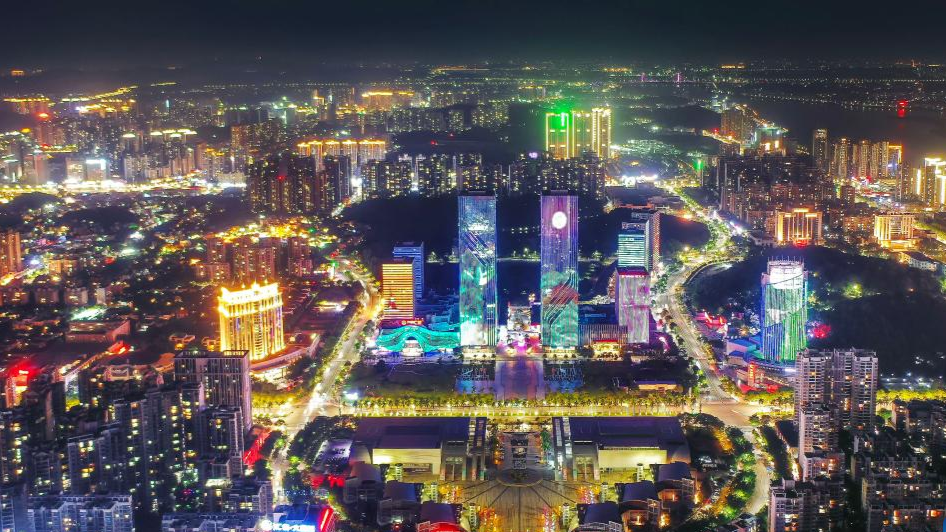
As China sets out on an ambitious journey to retool the world’s second-largest economy and make itself heard technologically, cities in the Guangdong-Hong Kong-Macao Greater Bay Area (GBA) are playing to their impeccable strengths, tapping the near-unlimited potential of the nation’s most productive, vibrant geographical area.
Those on the trail include Jiangmen, a city that has made significant efforts to nurture ties with its neighbors, including Hong Kong and Macao, in a bid to contribute to the country’s quest for greener, more sustainable development.
Integration and collaboration are the name of the game. Known as the hometown where the Chinese diaspora, living in more than a hundred countries, can trace their roots back to, and with geographic proximity, infrastructural connectivity, and cultural and linguistic similarities, Jiangmen has all the elements required to be a natural magnate for investments from Hong Kong, Macao and overseas.
READ MORE: Sipping afternoon tea on a sightseeing bus in Jiangmen
The city has attracted more than 4,700 overseas companies, of which Hong Kong-funded firms account for nearly 80 percent, according to official data.
Last year, the Jiangmen Innovation and Entrepreneurship Competition, in its 12th edition, introduced a division for competitors from Hong Kong and Macao for the first time. Some 66 enterprises from Hong Kong and Macao took part, with 10 building up business presence in the city, according to Jiangmen Municipal Science and Technology Bureau.
In what Hong Kong Chief Executive John Lee Ka-chiu described as the “representative and landmark outcome of collaboration between Hong Kong and Jiangmen”, Jiangmen Laboratory of Carbon Science and Technology, joined with Hong Kong University of Science and Technology’s Guangzhou and Hong Kong campus to establish the Guangdong-Hong Kong Joint Laboratory for Carbon Neutrality, which got the go-ahead in December 2023.
Focused on three areas of concern including carbon accounting and carbon dioxide utilization, new and efficient photovoltaic technologies, and carbon policies and carbon economy, the laboratory aims to respond to some of the burning issues of climate change and make a meaningful environmental and social impact, said Xu Ming, executive director of Jiangmen Laboratory of Carbon Science and Technology and director of the Guangdong-Hong Kong Joint Laboratory for Carbon Neutrality.
Due to its geographic location, Hong Kong is susceptible to climate impacts such as storm surges, rising sea levels, rainstorms, tropical cyclones, droughts and heatwaves.
It faces “unique climate change problems, given its own characteristics of local industries and geography” Xu said, which call for “closer regional cooperation for tailor-made solutions”.
“From a technological perspective, areas such as waste management and carbon reduction are of vital importance for densely populated and land-scarce cities like Hong Kong. And how to turn waste into wealth spells huge opportunities of mutual benefit and complementary development across the bay area,” Xu noted.
READ MORE: Second GBA cross-sea mega project trial run set to begin
As carbon tariffs add more uncertainty to global trade, Xu said he also saw a growing demand for carbon accounting services from the region’s export-led companies.
“First and foremost, we help local firms conduct carbon emission audits to understand and measure their carbon footprint before identifying appropriate carbon reduction measures with our innovation technologies,” he said.
Of particular note is a partnership between the joint laboratory and Infinitus Hong Kong, which sets a prime example of industry-academia-research collaboration between Hong Kong and Jiangmen, he added.
Contact the writer at sophialuo@chinadailyhk.com


